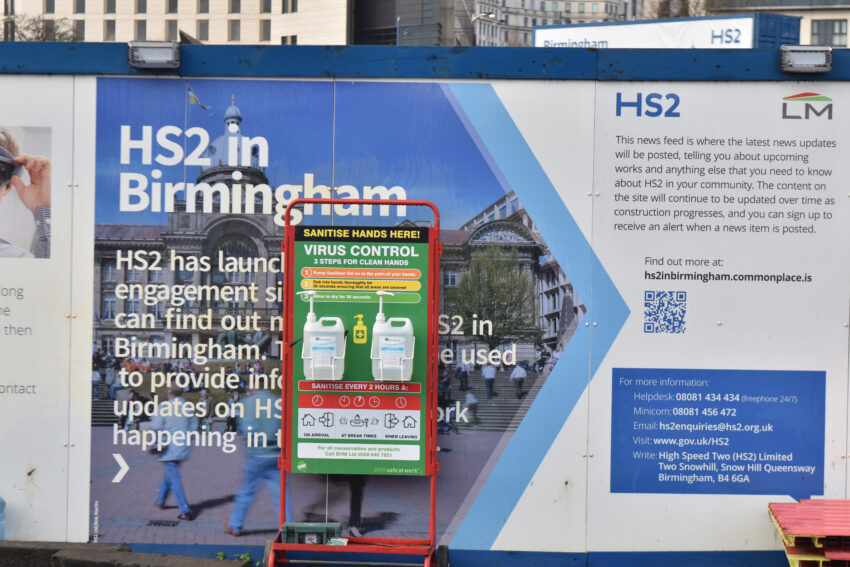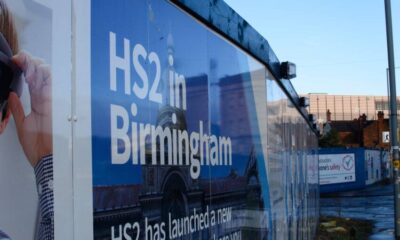Business
HS2 reveals £2bn costs as a result of Sunak’s downgrade of rail project

HS2 has revealed more than £2 billion in costs linked to Rishi Sunak’s decision to downgrade the high-speed line.
Britain’s biggest infrastructure project announced it had written off £1.1 billion of costs incurred during “phase two”, which was intended to connect Birmingham to Manchester until the government scrapped it last year.
In its annual report, HS2 Ltd disclosed a further £1 billion in accounting costs related to the project’s reduced ambitions, which will reduce expected future revenues. In total, the company reported £2.17 billion in one-off costs as a result of the railway’s scale-up.
Sunak canceled the second stage of the HS2 project and scaled back plans for London Euston station at the Conservative party conference in Manchester last October. The decision, which was seen as a political misstep, caused consternation in Manchester, a city that was set to benefit from the new high-speed connection.
The HS2 project had suffered long delays and rising costs, pushing its estimated price tag to £71 billion. The government claimed it would save £36 billion by scrapping part of the line, with Sunak promising to reinvest in other rail projects, including Network North, to improve connections between northern cities.
Originally planned as a Y-shaped line connecting London with Manchester and Yorkshire, HS2 has been gradually scaled back. Boris Johnson’s government canceled plans for HS2 to reach Leeds in November 2021. The decision to end HS2 in Birmingham was met with anger in regions set to benefit. Labor has stated it will not reverse the decision, with Keir Starmer acknowledging in January that this was “not possible”.
The government’s spending watchdog recently noted that the decision to scrap the second stage of HS2 is likely to mean higher fares on the west coast main line from London to Manchester, to discourage rail travel. HS2 was intended to relieve capacity on the line, but the National Audit Office warned that there could be 17% fewer seats on trains between Birmingham and Manchester as a result of the decision to ax the line in the Midlands.
HS2 attributed £850 million in asset write-downs to the cancellation of the Birmingham-Manchester route, meaning the company “no longer expects to derive an economic benefit from the preparatory works required to build these phases.” This figure does not include the costs of purchasing land and real estate, which the company hopes to sell later.
The company also reported a loss of £1.07 billion from the canceled phase two, which included design, legislative preparation, support works and environmental projects. A further £95 million in costs will arise from the wind-down of the project, such as “remediation” and ensuring a safe stoppage of work.
In theory, some of the taxpayer’s costs could be recouped by diverting money to other parts of the rail network, or if a future private or public body revives the Birmingham-Manchester line or the original larger scheme for Euston station.
The annual report also revealed that former HS2 chief executive Mark Thurston was paid £652,569 for his final year, including a bonus of £34,345. Thurston resigned in 2023 after six years. At the time, HS2 was still expected to extend to Crewe and Manchester.
An HS2 spokesperson said: “We are required to declare expenditure on the project from which HS2 Ltd is no longer expected to derive any economic benefit. In this case, the losses relate entirely to the work on the northern phase of HS2, which was canceled by the previous government, and to the former Euston high-speed station design.”
Shadow Transport Minister Helen Whately commented: “Canceling the second leg of HS2 was a difficult decision, but it was the right decision. The £36 billion saved will make a bigger difference in improving roads and rail for communities across the country. Or at least it would have, because Labor has now thrown the entire transport pipeline into chaos. It appears vital transportation upgrades will be collateral in their mission to destroy our legacy.”
The Ministry of Transport, Public Works and Water Management has been contacted for comment.













